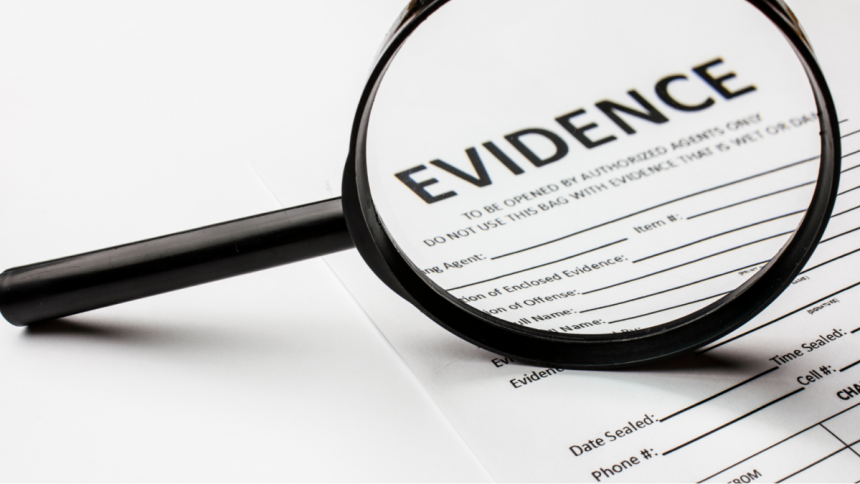Domestic violence cases are some of the most sensitive and complex matters in the legal system. For victims seeking protection and justice, evidence plays a vital role in establishing the facts and ensuring fair outcomes. Without strong evidence, it can be challenging to prove claims or secure legal remedies such as intervention orders or criminal convictions. In this article, we’ll explore the importance of evidence in domestic violence cases, the types of evidence commonly used, and how legal professionals like Tonkin Legal Group can help victims navigate the process.
Why Evidence Is Critical in Domestic Violence Cases
Establishing Credibility
In many domestic violence cases, it comes down to one person’s word against another’s. Evidence provides an objective basis for the court to evaluate the claims. Strong evidence helps establish the credibility of the victim, increasing the likelihood of a favorable legal outcome.
Securing Legal Remedies
Evidence is essential for obtaining protection orders, such as intervention orders or apprehended violence orders (AVOs), and for pursuing criminal charges against the perpetrator. Without sufficient evidence, the court may be reluctant to take action.
Protecting Victims and Children
In cases involving children, evidence is crucial to prove the need for safety measures. This might include restrictions on the perpetrator’s access to children or supervised visitation. The court prioritises the best interests of children, and evidence ensures that decisions are made based on facts.
Types of Evidence in Domestic Violence Cases
Physical Evidence
Physical evidence includes any tangible items that can demonstrate the occurrence of violence or abuse. Common examples include:
- Photos of injuries, bruises, or damaged property.
- Medical reports documenting physical harm.
- Torn clothing or other damaged belongings.
This type of evidence is particularly compelling, as it provides direct proof of violence.
Witness Testimonies
Statements from witnesses, such as family members, friends, neighbors, or co-workers, can strengthen a victim’s case. Witnesses may provide information about:
- Instances of violence they observed.
- Changes in the victim’s behavior or appearance.
- Threats or abusive behavior they overheard.
Text Messages, Emails, and Phone Records
In today’s digital world, electronic communication often plays a key role in proving domestic violence. Evidence can include:
- Threatening or abusive text messages and emails.
- Voicemail recordings with abusive language.
- Call logs showing repeated harassment.
This type of evidence demonstrates the pattern of behavior and helps establish intent.
Police Reports
If the police have been called to intervene, their reports can serve as strong evidence. Police records document incidents, including statements from both parties, and often include details about the situation when officers arrived.
Diary Entries or Personal Notes
Victims sometimes document incidents of abuse in a diary or journal. While this evidence may be seen as subjective, it can help establish a timeline of events, particularly when paired with other forms of evidence.
Psychological and Emotional Evidence
Evidence of emotional and psychological abuse is harder to quantify but just as important. This can include:
- Testimonies from psychologists or counselors.
- Medical records showing symptoms of anxiety, depression, or PTSD.
- Letters or messages showing controlling or manipulative behavior.
Challenges in Gathering Evidence
Fear and Intimidation
Many victims hesitate to gather evidence out of fear of retaliation. They may worry that the perpetrator will discover their efforts and escalate the abuse.
Lack of Resources
Victims may lack the resources or knowledge to collect and preserve evidence effectively. This is where legal professionals like Tonkin Legal Group can provide critical guidance.
Emotional Distress
Domestic violence often leaves victims emotionally drained. It can be quite challenging to manage trauma and find the strength to record violence. The assistance of friends, family, and experts can have a big impact.

How Tonkin Legal Group Can Assist
It can be intimidating to navigate the judicial system in cases of domestic abuse. Tonkin Legal Group specializes in providing compassionate and expert assistance to victims of domestic violence. Their team can:
- Advise on the types of evidence required for your case.
- Help you gather and preserve evidence in a safe and effective manner.
- Represent you in court to guarantee that your rights are upheld and that your voice is heard.
- Assist in securing intervention orders or other protective measures.
With their experience in handling domestic violence cases, Tonkin Legal Group can provide the legal support you need during this challenging time.
Steps to Strengthen Your Case
Keep Records
Maintain a detailed record of incidents, including dates, times, and descriptions of what occurred. Photos, screenshots, and written notes can all serve as valuable evidence.
Seek Medical Attention
If you’ve been physically harmed, seek medical care immediately. Medical records not only document your injuries but also provide a professional assessment of their cause.
Involve the Police
Report incidents of abuse to the police, even if you’re hesitant to pursue criminal charges. Police reports create an official record of the abuse and can be used as evidence.
Work with a Lawyer
Early legal advice from an experienced lawyer can have a big impact. They can guide you on gathering evidence, navigating legal processes, and protecting your rights.
Conclusion
Evidence is the foundation of any domestic violence case. Whether you’re seeking a protection order or pursuing criminal charges, strong evidence ensures that your claims are taken seriously and that justice is served.
Do not be reluctant to seek legal assistance if you are experiencing domestic violence. Tonkin Legal Group has the experience and compassion to support you through the process. They understand the complexities of domestic violence cases and are committed to helping victims secure the protection they deserve.
Lynn Martelli is an editor at Readability. She received her MFA in Creative Writing from Antioch University and has worked as an editor for over 10 years. Lynn has edited a wide variety of books, including fiction, non-fiction, memoirs, and more. In her free time, Lynn enjoys reading, writing, and spending time with her family and friends.















